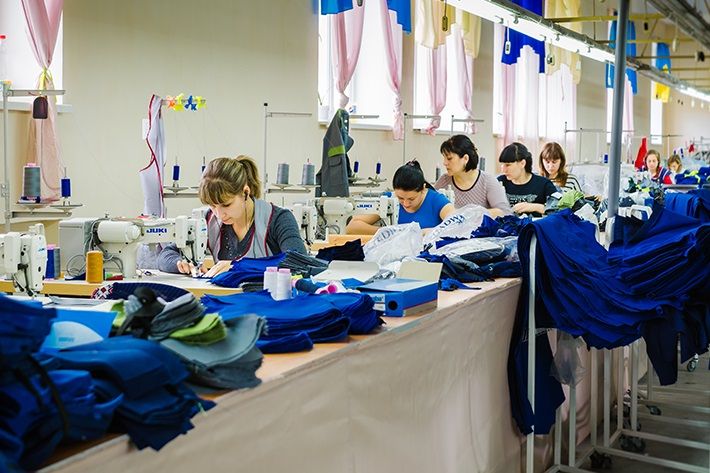
The structure of garment supply chains is such that there is asymmetrical power relationships between brands and suppliers, said Anannya Bhattacharjee, International Coordinator, Asia Floor Wage Alliance, an Asia-led global labour and social alliance. “We need a transformative shift in the global supply chains.”
Brands must ensure a living wage to workers because living wage is a strategy to fight for a more sustainable planet and sustainable supply chains, Bhattacharjee said during a session on ‘Low workers’ pay in fashion: Is there a way out?’
“If you are paying living wages, it makes your supply chain sustainable not only from human rights points of view but also from environment point of view,” she added.
According to Bhattacharjee, living wage is something that “actually slows down fast fashion, it gives us better quality and less volume”. Mentioning that around 30 per cent of clothing produced today goes into waste, which hurts our planet, she said that “we need to reimagine economic growth around human beings instead of stuff. This is the fundamental shift that we need.”
Speaking on the same lines, Dominique Muller, Policy Director, Labour Behind the Label (LBL), a small but very influential organisation based in the UK which campaigns for workers’ rights in the garment industry, said, “It is now time for change – to address systemic causes of poverty wages in the garment and footwear industry, and force brands to take accountability.”
Stating that there are an estimated 60 million workers that power the global garment industry, she said that the legal minimum wages in garment producing countries fall short of a living wage, and the gap between minimum wage and living wage is growing.
“If brands pay too little for production, it forces factories to make difficult choices, often ending up in cutting workers’ wages to cover other expenses first,” said Muller. She said that transparency is crucial to changing the industry and knowing what conditions workers are working in.
She pointed out that while production can be outsourced, the responsibility to respect human rights and pay a living wage remains with the brand. According to her pricing and purchasing is crucial. “Looking at the sustainability aspect, we have a situation where we over produce and over consume. As buyers are tasked with getting the lowest price possible, suppliers estimate the lowest possible cost of production based on minimum wages rather than living wages, and ten-hour days, including two hours of overtime, rather than eight-hour working days. So, brands need to take responsibility to modify their purchasing practices.”
“Brands need to commit to paying a living wage contribution on every order they place, sufficient to close the wage gap for all workers in their supply chain,” said Muller who gave a call that “it is time to use the available data to highlight the human rights abuses in fashion, and get concrete, meaningful, and measurable wage increases across the supply chain.”
Gonzalo Xavier Estupinan, Regional Wage Specialist in the Decent Work Team (DWT) for Asia and the Pacific at the ILO, was the next to speak at the session. He said that the compensation and benefits paid to workers in the garment industry is important. Citing Efficiency Wage Theory, he said paying higher wage than the market rate increases efficiency in hiring, productivity on the job, and minimises staff turnover. It also increases employee motivation, boosts employee loyalty, increases productivity and promotes equity among the workforce.
Among the lessons learnt from the COVID-19 pandemic is that wage policies must ensure basic social security benefits to address work and life contingencies. He said that pushing for adequate wages in a sustainable business environment would need to address minimum wage systems, and enhance degree of compliance like labour inspections, information or awareness campaigns, grievance channels, and effective sanctions being implemented.
There is also a need for transitioning from informal economy to formal economy, and increase productivity, particularly among SMEs, he added.
Towards paying a just wage to garment workers, Estupinan said that ILO has developed a methodological framework to assess needs of workers and their families beyond a poverty line and towards decent living conditions. The framework has been made by making use of income and expenditure surveys from national statistical offices. “This need-based methodology can benefit brands, buyers, suppliers, contractors, worker organisations and regulators. Though it may not always be possible to adjust wages to such benchmarks, focus can converge into a progressive global supply chain objective based on labour productivity and industry recovery.”
The ILO’s methodology has already been developed and tested in five pilot countries, viz. Costa Rica, Ethiopia, India, Indonesia and Vietnam.
Concluding the session, Estupinan said that benchmarking the cost of living as the needs of the workers and their families is essential.
Fibre2Fashion News Desk (RKS)